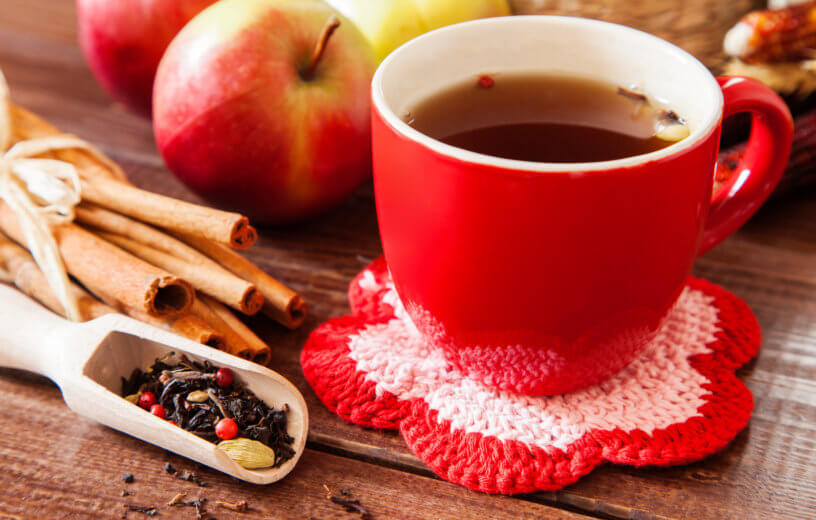Flavonoid-rich
diet protects against cancer and heart disease, study finds
Edith Cowan University
 Consuming
flavonoid-rich items such as apples and tea protects against cancer and heart
disease, particularly for smokers and heavy drinkers, according to new research
from Edith Cowan University (ECU).
Consuming
flavonoid-rich items such as apples and tea protects against cancer and heart
disease, particularly for smokers and heavy drinkers, according to new research
from Edith Cowan University (ECU).
Researchers from ECU's
School of Medical and Health Sciences analysed data from the Danish Diet,
Cancer and Health cohort that assessed the diets of 53,048 Danes over 23 years.
They found that people
who habitually consumed moderate to high amounts of foods rich in flavonoids,
compounds found in plant-based foods and drinks, were less likely to die from
cancer or heart disease.
No quick fix for poor
habits
Lead researcher Dr
Nicola Bondonno said while the study found a lower risk of death in those who
ate flavonoid-rich foods, the protective effect appeared to be strongest for
those at high risk of chronic diseases due to cigarette smoking and those who
drank more than two standard alcoholic drinks a day.
"These findings are important as they highlight the potential to prevent cancer and heart disease by encouraging the consumption of flavonoid-rich foods, particularly in people at high risk of these chronic diseases," she said.
"But it's also
important to note that flavonoid consumption does not counteract all of the
increased risk of death caused by smoking and high alcohol consumption. By far
the best thing to do for your health is to quit smoking and cut down on
alcohol.
"We know these
kind of lifestyle changes can be very challenging, so encouraging flavonoid
consumption might be a novel way to alleviate the increased risk, while also
encouraging people to quit smoking and reduce their alcohol intake."
How much is enough?
Participants consuming
about 500mg of total flavonoids each day had the lowest risk of a cancer or
heart disease-related death.
"It's important
to consume a variety of different flavonoid compounds found in different plant
based food and drink. This is easily achievable through the diet: one cup of
tea, one apple, one orange, 100g of blueberries, and 100g of broccoli would
provide a wide range of flavonoid compounds and over 500mg of total
flavonoids."
Dr Bondonno said while
the research had established an association between flavonoid consumption and
lower risk of death, the exact nature of the protective effect was unclear but
likely to be multifaceted.
"Alcohol
consumption and smoking both increase inflammation and damage blood vessels,
which can increase the risk of a range of diseases," she said.
"Flavonoids have
been shown to be anti-inflammatory and improve blood vessel function, which may
explain why they are associated with a lower risk of death from heart disease
and cancer.."
Dr Bondonno said the
next step for the research was to look more closely at which types of heart
disease cancers were most protected by flavonoids.
'Flavonoid intake is
associated with lower mortality in the Danish Diet Cancer and Health Cohort'
was published 13 August in Nature Communications.
The ECU study was a
collaboration with researchers from the Herlev & Gentofte University
Hospital, Aarhus University, as well as the Danish Cancer Society Research
Centre, Aalborg University Hospital, the Universities of Western Australia and
the International Agency for Research on Cancer.